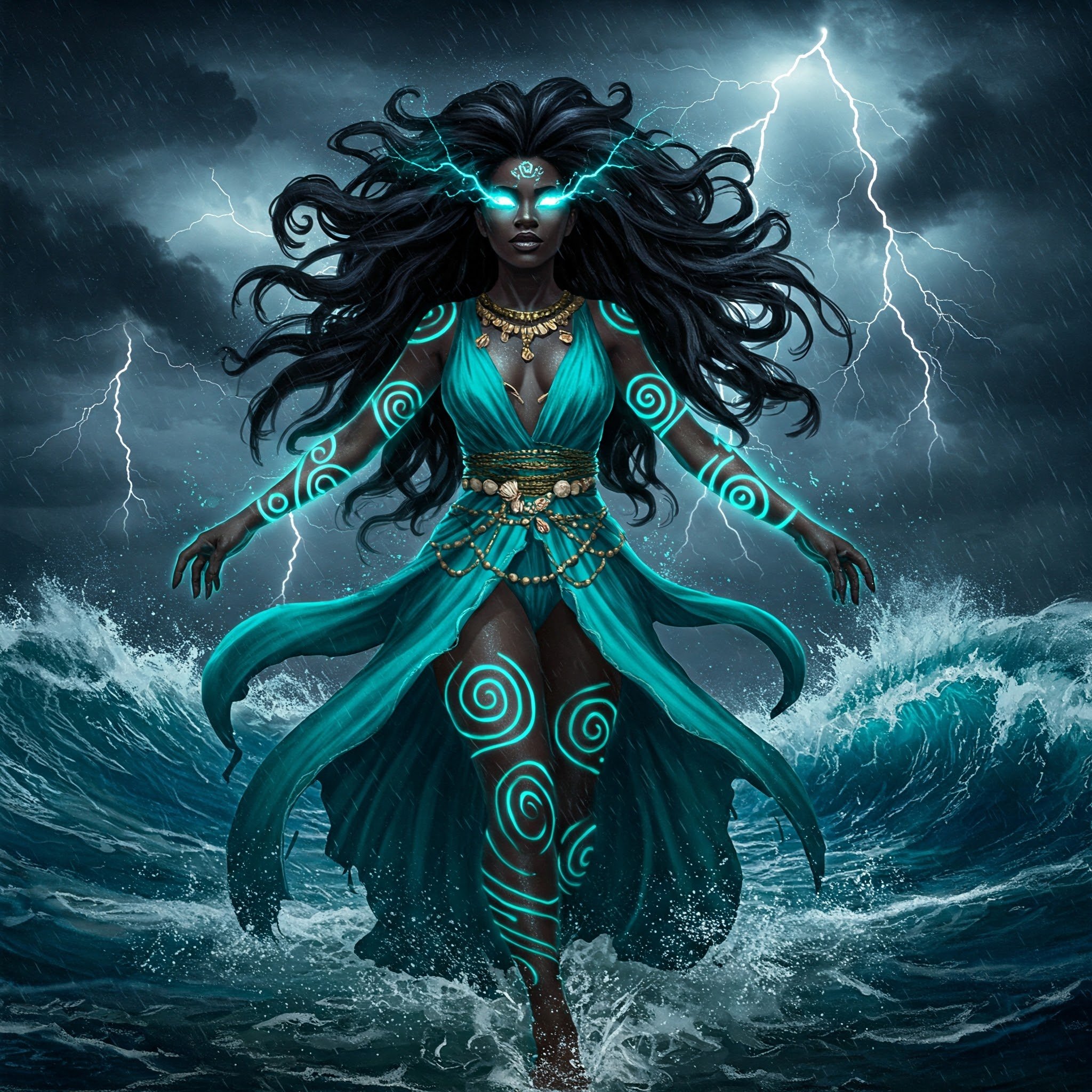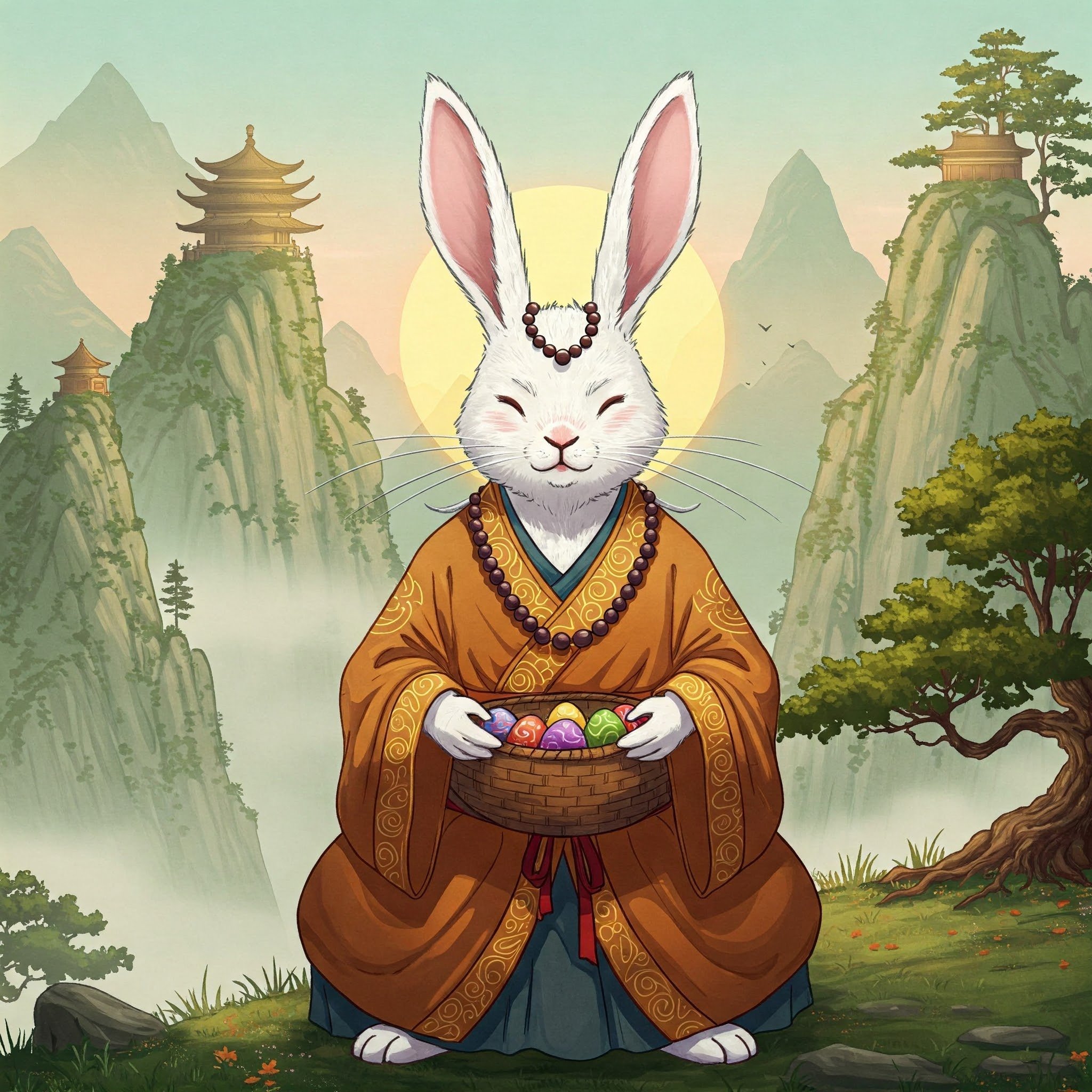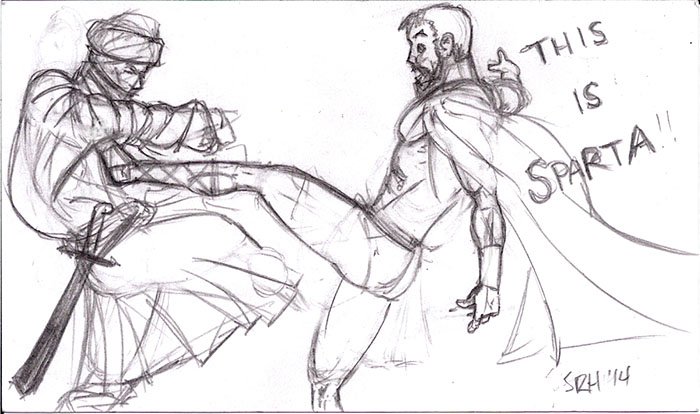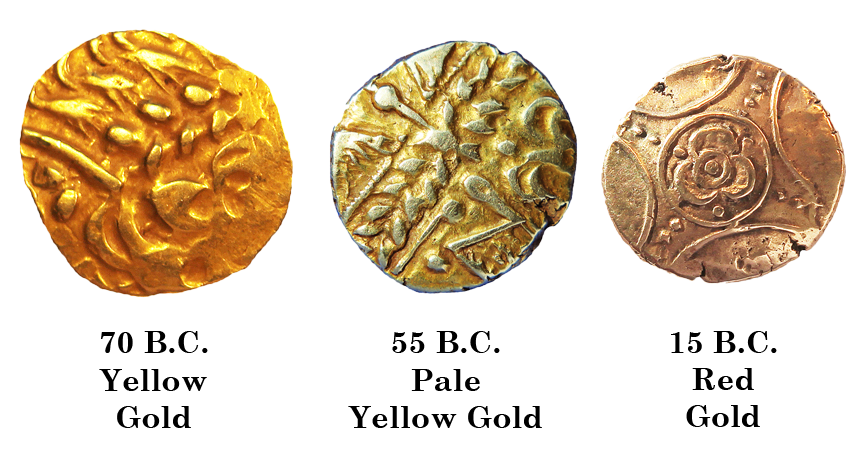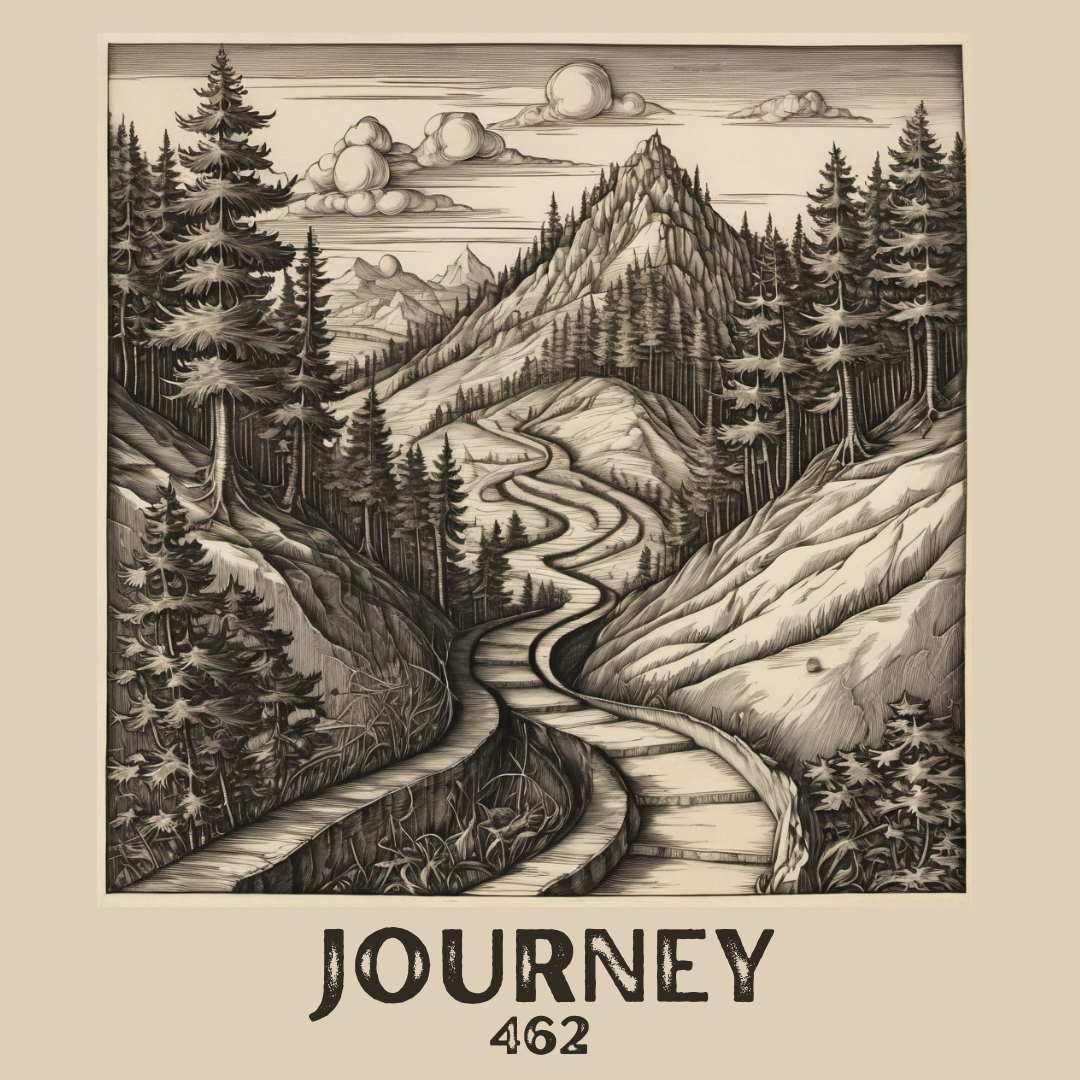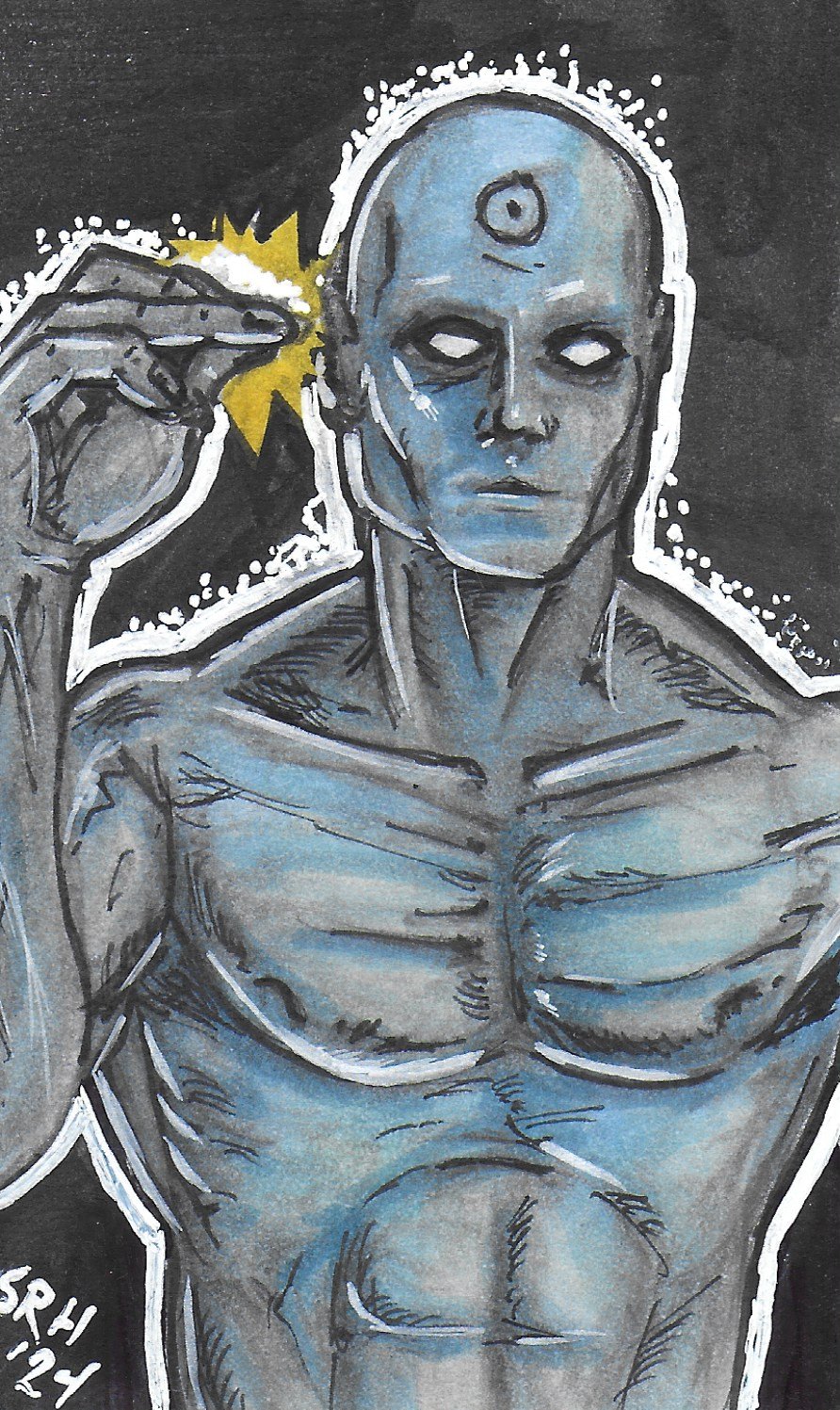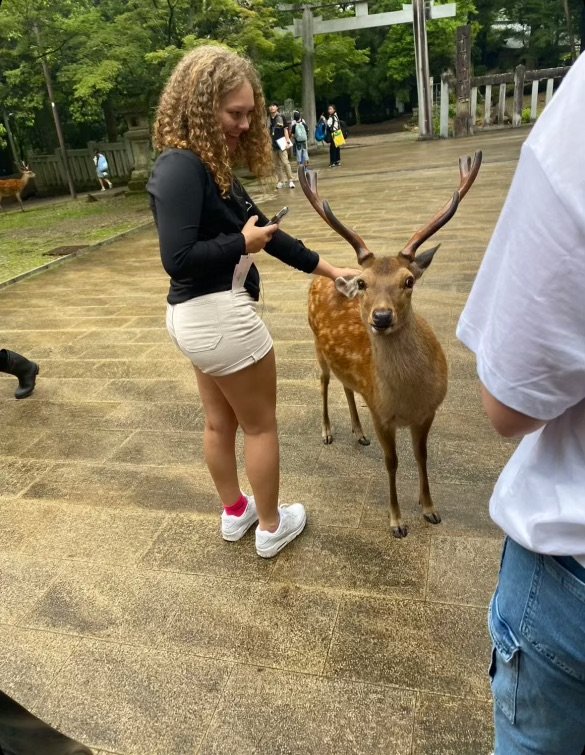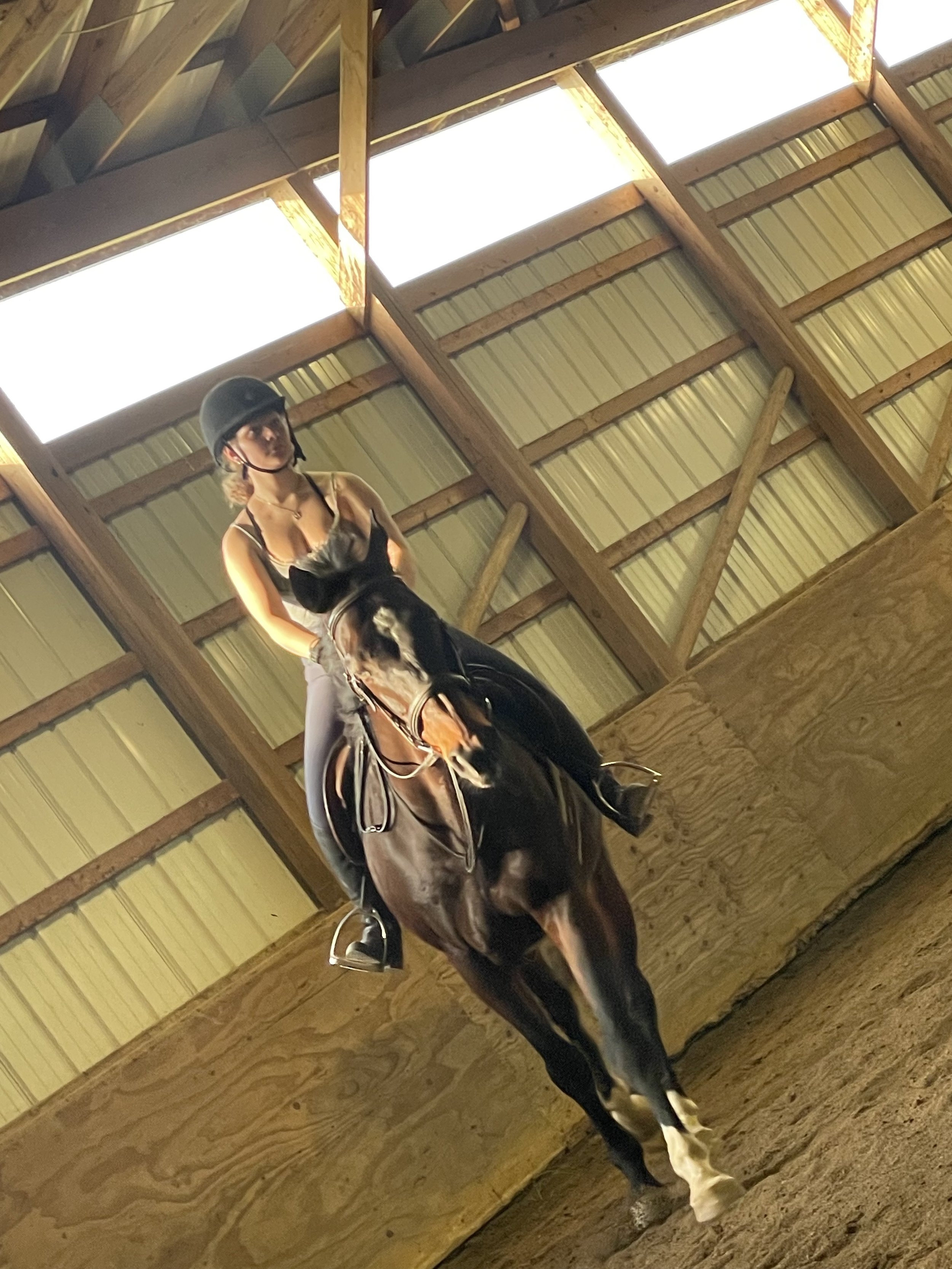This week I have the pleasure of asking Ben Callahan 20 Questions. I met Ben at a IXDA Columbus talk that he was giving on a series of wider UX conversations lovingly called “The Question.” I saw this and immediately knew I had to ask the guy who asks the question, 20 of my questions. As his website says, Ben is an author, speaker, coach, and founder. He is extremely open to possibility and welcomes new thoughts and perspectives. His presentation on the Question was thought provoking and a delight to be a part of. That being said, I don’t know Ben very well, so let’s change that.
On to the questions:
In my former life as a cartographer/geographer, my passion for geography and the intriguing notion of "space" has fueled my curiosity about people's geographic stories. My own story unfolds like this: I came into the world as an air force brat at Tinker Air Force Base near Oklahoma City, Oklahoma. Following my father's military postings, we made our way to Montgomery, Alabama, and eventually settled in the greater Birmingham arae in Alabama, specifically in Center Point, where I spent my formative years until college beckoned me to Kent State University. Post-graduation, I ventured to Columbus, Ohio, accompanying my then-fiancée, now ex-wife (it’s all good we are still good friends), for our graduate studies at Ohio State University. Since then, Columbus and its environs have been home, where I've shared life's adventures with my children, my wife, and her children (my step kiddos).
Question1: What is your “Geographic Story?”
I have some similarities to what you shared, Scott! I was born in Oregon where my parents moved after they returned from their Navy posting in Japan to get married. From there, we moved a lot—my Father transferred to the Air Force so we were in Cleveland, Philly, Biloxi, Omaha, and (eventually) Dayton, Ohio. I currently live just outside of Dayton with my two kiddos. My partner lives here in Oakwood as well, just a few blocks away, with her kids. We love the walkability of our little hometown, but are excited to get out of Ohio eventually, once our kids are out of high school. I’ve been fortunate to travel to some very beautiful places for work and play. My partner and I both left our hearts in Switzerland since we first visited a few years ago. We go back as often as we can, but we also love NYC: the pace, the food, the arts, the fashion, the culture. In general, anywhere is just fine as long as the people I love are along for the ride.
It is not the destination, it is the journey and the people you meet along the way. So, even in your above response about where you have lived, you mentioned extensive travels.
Question 2: where is the furthest you have traveled from where you are right now?
I’ve been fortunate to see many places, but the furthest is probably Israel and Jordan. I was only there for a short time, but it was eye-opening and challenged me to consider the impact a place has on what someone believes and who they become because of those beliefs.
I have also traveled to Brazil, Lithuania, Latvia, Estonia, Hawaii, and all over Western Europe.
I’d like to travel all over Africa (to meet the people and see the culture and the landscape). I would love to spend some time in Asia as well: Japan (for the food, cherry blossoms, and architecture), Indonesia (for the surfing and the beaches), India (for the culture, food, yoga), and South Korea for all of the reasons above!
Many of the places you have listed as having been to are on my list of places I would like to go. My big trip that I would love to take would be to Antarctica… but that is a story for a different time.
It is time for the question of the ages. A question I have been asking for over 15 years. I should probably go through all my interviews and collate the data, but that sounds like work. Eventually when llm’s get better, I will task a bot to go through all my interviews and create some statistics. Everyone has been waiting for it.
Question 3: Cake or pie? Which specific kind and why?
This is really hard. I love pie crust, but I also love a really dark chocolate cake—moist and dense is what I’m after. But pumpkin pie is so good…. You’re killing me. If I can still have cupcakes after choosing pie, then I choose pie. If I can’t then I need some cake.
In my years of asking this question, the people who tend to choose pie, really like pie, but people who choose cake would punch a puppy in the rain for a piece of that sweet cake confection. I never really understood the concept behind this virulence in cake love until I asked the LLM’s about it. Both Chad (ChatGPT) and Bart (Gemini) surmised that the reason for the discrepancy of fervor was due to pies being a yummy thing you eat from time to time, and that cakes are often a symbols of celebration for an occasion that needs to be lauded with confection.
Question 4: Does this rational hold up up to your scrutiny? And how did the LLM’s figure that out before me?
Interesting. Personally, I don’t like many things that are too sweet. Hence my love of pie crust and dark chocolate cake. I think of having pie at Thanksgiving and cake at someone’s wedding or birthday. I guess I don’t necessarily disagree with the AI on this. They clearly got their answer from articles around the world explaining those ideas, unless someone has built a taste-testing AI I don’t know about. Ironically, artificial intelligence was my specialization while I was studying for my computer science degree. Things have changed a lot since then, but it’s a fun time to be a large language model right now.
This is the dawn of the age of AI. Starting with ML and expert systems tuned using fuzzy logic to now, 3 big players in the generalized LLM AI landscape (Chat GPT, Gemini, and Anthropic) attempting to approximate human interaction, this is definitely a time of great growth in LLM’s. The leaps and gains have seemed relatively exponential lately, but I think the evolution of LLM’s is starting to plateau as the newer versions seem to be less quantum jumps and more interactive improvements. This is fairly typical cycle for new tech which leads me to ask:
Question 5: Do you think that a generalized AI will ever be true “intelligent” and not merely a better statistical probability output that closely approximates a human?
I’m an optimist. Because of this, I think I agree more with Kurzweil than I do with Musk—it’s more likely that we’ll merge with AI in many odd and interesting ways than we’ll be extinguished by AI.
My optimism also leads me to believe that generalized AI will, at some point, be indistinguishable from human intelligence. The curves on those graphs are also quite scary—once we reach that point, it’s wild how fast the predicted intelligence expands.
The question behind your question is more a spiritual one than a technical one, though—will we ever see AI as intelligent in the way we see humans as intelligent? That is maybe more about personhood than intelligence, and the basis of all the good science fiction out there 🙂
More than anything, I love the thought exercise of considering these ideas. In the end, it may be the body modders that win simply by being willing to try things with their brains the rest of us will be fearful of.
I, too, have an optimistic feeling about how people will integrate with AI. I don’t think that any AI we create will be our downfall. I do kind of think that the AI we create will evolve into something wildly beyond anything we could have imagined, and will eventually leave us behind, both figuratively and metaphorically.
AI is just something I have been playing with and really have enjoyed. LLM’s are interesting things, but it is clear that they are mirrors of the prompts you give them. Recently, in my job search that is taking entirely too long, I have been getting an AI assist in my cover letters. I create a prompt that generates a cover letter for the specific position and then have to edit the hell out of it to get the position description phrases out of the letter., but that is a tale for another day.
My path to UX was similar to my path to cartography. Much like no one sets out to be a geographer, no one (at least up to very recently) sets out from high school to become a UX practitioner. That is one of the reasons that I love the UX industry so much. There are so many varied knowledge bases that end up in UX.
Question 6: What was your journey to becoming a UX practitioner?
I studied Computer Science (on the AI track, actually). With this degree, I landed a job as a Software Engineer right out of university and worked in an enterprise product company fixing other people’s bugs for five years. Those five years were a slow death for me. The culture, the process, the interactions felt like poison to me. So, having saved up some money, I took a bit of time off and worked at a small nonprofit doing creative work for a year. This gave me a chance to experiment with all kinds of design, animation, video, audio, photography, writing—anything I wanted to do, I could do. After that year, I started a company called Design District with a friend who had studied film. We made short movies on the weekends and corporate videos during the week. Editing eight hours of talking heads will make you question your life. Luckily, one of our customers asked us to make them a website. We made a five page static site over the course of the next couple weeks for $500. Pretty soon, all our clients were asking for this. Eventually, I found a real passion for building interfaces. This was the intersection of my love for programming and my appreciation for the human condition—there was a person on the other side of every experience I built.
About this time, I read Zeldman’s book on web standards and it fundamentally changed my perspective on the web. That was the beginning of my real career and I’ve been doing something related for the last 20 years.
It is very interesting that you went to school for computer science. Especially since it was CS, from the before times. The CS department at college was in the same space as the mathematics department at Kent State in the mid 90’s (not sure that is still the case), and you did not strike me as having the kind personality I met during that time. It is very clear that you really integrate the “human” into your work. Truly, it is fascinating. But this is coming from someone who had to drag his sketch board and charcoals to his elements of topology class, and was studying differential equations while etching zinc plates in his printmaking class… so I get it.
Now, onto a completely different directions… Question 7: if you could have dinner with any 5 people in the world who have ever lived, what food would you serve for that dinner?
There’s a salad Jamie Oliver makes that is out of this world—I’d start with that. I’d probably make some rustic white bread from Ken Forkish which would work well as the bread for that salad (and to snack on with some nicely salted butter). Perhaps I’d smoke some beef ribs or roast a chicken. Might be nice to do a simple blackened broccolini with a bit of EVOO and some good salt and freshly cracked pepper. For dessert, a chocolate mousse and an espresso is hard to beat. For drinks, we’d maybe start with a Negroni and then have a Pinot Noir if we had chicken or a Syrah or Cab if we had the beef ribs.
Around 4 courses if I counted correctly. I think that is an interesting set-up to a “5 People Ever” meal. There is structure to it, but nothing over-bearing. There is a certain level of formality to it. The menu is not stuffy, but it is rich. The entree (either option) is relatable to any time period, and understandable for most, if not all, cultures. People have been eating cows and chickens since time immemorial. It is not so casual that you need paper towels, but it is also not formal enough to require white linen. I would imagine the conversation would be engaging, but never raucous. There would be insights shared, but not necessarily tales.
Question 8: Fill in the blanks (editor’s note: feel free to ask others for input on the first blank): Others find that I am mostly _____. I feel that I am mostly _____.
Interesting. I asked my partner to fill in that first blank, and she said, “I find that you are mostly good at everything.” In response to this, I thought to myself, “I feel that I am mostly trying to learn all the intricacies of an interest.” I suppose this makes me seem, from the outside looking in, like I am good at that thing even though I’m just learning about it. 🙂
I asked my kids to both answer as well…
“I find that my dad is mostly making something.” When I asked for clarity, here’s what my youngest offered: “You're either doing something creatively or making food or working on a project.” I think this is true. I like to create stuff and I always have a project or two going. Ironically, when I read this and then go to answer the second half, I feel that I am mostly distracted. An area of growth for sure.
My oldest answered, “I find that my dad is mostly someone who enjoys working with and being around a group of people.” This is true, although less so than it used to be. These days, I feel that I am mostly someone who enjoys being around a small group of my chosen people—not just anyone, haha!
I think you may be the first person who has gotten feedback from their kiddos. I love it. One thing that stands out to me with those answers is that, while not exactly the same, they all align pretty well. Inquisitive and busy, there are worse things to be accused of.
Question 9: What interest are you currently trying to learn the intricacies of?
Several. I’ve been on a 15 or 20 year journey with coffee—next on my list there is roasting… I am currently digging in on learning the Mandolin. I’ve always been a musician, but never played stringed instruments (except the piano). I’ve also been working for the last four and a half years to become a poet. That sounds a little odd, perhaps, but I think there’s tremendous beauty (and value) in being someone who can say a lot with a little. Poetry is the apex of that idea, and I intend to develop that skill for the remainder of my life!
Poetry is something anyone can do, but only those who really work at it can do it well. I truly am envious of people who are capable of poetry. Poetry is just not my thing. I like it, but it is just not in my skillset.
Deceptively simple question, but very profound. Question 10: Are you happy?
Yes!
I believe happiness comes from alignment. Alignment comes from knowing your true self so that you can say yes to things that align with that and no to things that don’t. It’s only in the last five years that I’ve learned who I truly am. That’s allowed me to walk away from certain things, toward others, to add some boundaries in certain places, and focus spending my time with people who appreciate and love me for who I am instead of what I can offer them.
I think it is amazing how many people are “unaligned,” as you refer to it. Happiness is most definitely about alignment and not fighting against who a person is. That is not all happiness is about, but without that alignment, it is nigh impossible.
Question 11: What advice would you give to yourself from 5 years ago?
I would say, “Don’t be afraid of change.” I’m someone who is very loyal to the routines I’ve established. But a life of growth and fulfillment requires regularly letting go of something in order to make space for a new and, often, better thing. Five years ago I fought that. After struggling through some big changes, I’m so much happier.
Of course, getting that advice and fighting through the growth are two different things. So, while I can look back with clarity on my situation, I’m grateful for the way the last five years have changed me. The struggle is the growth, you know? This ties into something I’m working on now, which is finding a way to appreciate and be grateful for the whole range of human experience. It’s the mundane of life that makes a vacation fun, the devastation of heartbreak that helps us genuinely recognize love. Every experience enables a perspective on another experience. I guess I’m saying this because I could give myself that advice about change, but I am pretty sure I needed the last five years to actually learn that lesson. In fact, I’m still learning it. I know this isn’t the root of your question, just something you got me pondering!
An interesting and wonderful thing that occurs during these 20 Questions Tuesday interviews I do, is that they often bring up things people might not have ever thought about and reframe how people look at things in their life. I know for a fact that as the interviewer, I always come to some growth in myself while merely just asking the questions.
Question 12: What is a piece of content/media (book, show, podcast, movie, blog, YouTube channel, etc…) that you feel everyone would benefit from consuming (reading, watching, listening, etc…)?
Depending on when you ask me a question like this, I’ll have a different answer! Something I’ve accepted about myself since COVID is that I am terrible at reading/watching/listening to anything from start to finish. Instead of fighting this, I’ve simply decided to lean in. :) That means I read a little bit of a lot of books each day. I have a stack of 12 books on my desk right now, all of which I’m reading. What this does is give me an explosion of dots to connect. As someone focused on design systems, the job is as much about the space between components as it is about the components themselves—if things don’t work well together, it doesn’t matter how amazing the things are independently. So, this acceptance of my inability to stay with a specific book or show or whatever without interruption has allowed me to exercise my “connect the dots” muscles, which just happen to be critical to design system work.
To your question, specifically, I’ve been working through a book called “Braiding Sweetgrass” by Robin Wall Kimmerer. In this book, there’s a chapter called “The Animacy of Grammar.” I can’t think of many pieces of writing that have changed me in the way these words have. They helped me to understand the way our language shapes our entire worldview. Cultural perspective is embedded in words, grammar, language, and we can’t even think without those words. Our language is so fundamental to who we are and yet I lived 46 years before I even understood its impact on who I am and how I perceive the world around me. I don’t know if it’s for everyone, but that chapter is my current recommendation.
Here we are with the triskaidekaphobia question. With a bit of a preface, because many people state that they have no superstitions, but are still creatures of habit. For example: when I played soccer in high school, I said I had a lucky routine for how I would get dressed for a game. It involved a very specific sequence of putting things on, especially the multiple layers of socks and shinguards. At the time I considered it my “Lucky” process to get ready for a game, but looking back on it, it wasn’t about luck, it was about intentionally transitioning from one state (not playing soccer) to another state (ready to play soccer) with what amounted to a ritual. So, when I mention ritual, it could be something like drinking a cup of coffee and doing the crossword before starting your day of work, and not necessarily sacrificing a chicken for luck.
Question 13: Do you have any superstitions or rituals in your life at the moment?
I’m certainly a coffee drinker and I absolutely enjoy the ritual of making the coffee as much as I do that first sip. I try to spend a bit of time each morning letting my partner know that she’s my top priority, reading, and thinking through my day. I’m not great at managing the balance between the reactive parts of my day and the proactive, longer-term goals I have. So, I use the ritual of “recentering” myself each morning to make sure I’m focused on the right things. I can’t think of any superstitions I have (that I’m aware of) 🙂
I have found that many people (both interviewed and non-interviewed) have rituals associated with coffee. The brewing and consumption of coffee is a time-honored tradition observed across various cultures and boundaries. While these rituals may differ from place to place, the act of consuming caffeine is widely acknowledged and appreciated by people around the world. Often to the chagrin of sleep hygiene.
Question 14: Do you have any adages, sayings, mottos, creedos, etc... ?
I do! I try desperately to “stay in learning mode”. I have this written on a yellow sticky note and posted to my display. It’s something I think about all the time. The reason this is important to me is because I genuinely believe every interaction I have is an opportunity to learn—each person I meet has something to teach me. Can you imagine how different things would be if we all approached each other in this way? What an amazing world, where everyone is valued for their lived experiences. That’s the world I want to live in.
Consistent learning is a laudable goal. I too try to keep that forefront in my mind, but it is not a credo to me. The best family credo that is in my extended family is “don’t let the fuckers get you down.” It is a crass motto, but a good one nonetheless.
Question 15: Is there any question I have not asked you that you either expected to be asked or would like to have been asked? We still have some q’s to rectify that deficiency if we need.
Hmmmm. I didn’t have a lot of expectations coming into this, so I’m not immediately thinking of anything! I would be happy to chat about the work I do—primarily design system consulting and coaching. I’d be happy to share about what it’s been like to run a digital product studio for 15 years. I’d be happy to talk about hobbies or extracurricular activities… You tell me!
I like the idea of asking about your coaching. I have gotten some career coaching in the past that was truly invaluable. I could probably use some more right now while I am in a bit of a professional transition, but this is not a coaching session, so I will ask a generic coaching question for you.
Question 16: In your coaching experience, is there a singular issue that most people asking you for coaching across the board could be boiled down into?
My coaching practice is very niche—I offer coaching to individuals and teams that are working on or leading a design system program. The thread through all of those conversations is often the cultural and change management side of the work. As with most things, the people are the hard part. I’m doing some long form writing on design systems and a concept I just articulated ties back into the language conversation we had above. Here’s the excerpt:
“If you want to understand an organization’s culture, you have to study the language they speak. If you want to shape an organization’s culture, you have to redefine the language they speak.
At its core, design system work is redefining language.”
Much of what I do with coaching is to help folks both understand this and translate what it means for them on a day-to-day basis.
I can honestly say that the coaching I’ve done in the last year has been some of the most impactful work in my career. Something about seeing your experience benefit someone else very directly is so rewarding!
That is a super interesting type of coaching. It was not what I was thinking when you mentioned coaching, mainly because the only experience I have had with coaching outside of sports is more of a one on one experience. This coaching seems more akin to organizational structure.
I will definitely use “Hear, hear!” and “Huzzah!” for the language insight. So much of work experience and work culture is not only the connotation of experience but the denotation of the language. Often the more practical language aspect of culture is overlooked because it is “just words.”

